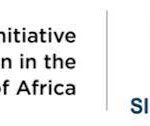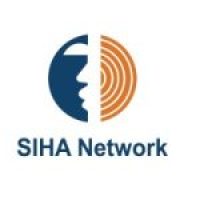The project’s theory of change (ToC) is built on the premise that young women in South Sudan, despite their proven potential in peacebuilding and political processes, remain largely excluded from decision-making. The project seeks to change this by equipping young women leaders (YWLs) with the necessary skills, knowledge, and mentorship to engage in local governance, politics, and peacebuilding efforts. It also aims to create safer environments and foster societal norms that support their participation. By doing so, the project envisions cultivating a more inclusive and equitable political framework in South Sudan that is representative of its diverse population. The idea is that when young women are empowered and provided with platforms to lead, they can play a critical role in conflict prevention, resolution, and nation-building.
Secondly, the ToC assumes that government structures will support this transformative agenda, that the active participation of YWLs will positively shift conflict and governance dynamics, and that the project’s efforts will endure beyond its timeline. The creation of civic platforms, policy advocacy, and community-building activities are key strategies for fostering this change. Uniquely, the project will adopt a feminist approach, focusing on grassroots YWLs and creating solidarity with women in leadership. This approach not only aims to increase numerical representation but also ensures that political priorities reflect the needs and aspirations of women at the grassroots level. Through deep community engagement and SIHA’s proven experience in empowering women in male-dominated spaces, the project envisions a more peaceful and inclusive South Sudan.
Objectives of the Baseline Study
The baseline study aims to provide baseline data that will provide information that will help set realistic targets and refine or modify the project’s design and approach to better align with the real issues on the ground, provide benchmarks against which progress will be evaluated, and identify gaps and priorities to support planning. Specifically, the baseline survey will.
- Assess the current participation of young women in governance and peacebuilding processes at both local and national levels in the target areas.
- Identify the barriers that prevent young women from participating in governance and peacebuilding processes in the target areas at both local and national levels.
- Gauge the level of acceptance and support for young women’s participation among state officials, community leaders, civil society organizations (CSOs), and other stakeholders.
- Evaluate the current institutional frameworks and measures that support or hinder young women’s participation in political and peacebuilding platforms.
Methodology
The consultant is expected to employ a mixed-methods approach for the baseline study, combining quantitative and qualitative data collection techniques. The methodology will include but not be limited to.
- Desk Review of existing reports, policies, and data on young women’s participation in governance and peacebuilding processes in South Sudan.
- Conduct surveys and use structured questionnaires for young women leaders, state officials, community leaders, and representatives from civil society organizations in the target regions.
- Conduct key informant Interviews (KIIs) with government officials, community leaders, and civil society representatives to explore their attitudes, perceptions, and practices regarding young women’s participation.
- Organize Focus Group Discussions (FGDs) with young women in each target region to capture their experiences, challenges, and recommendations for improving their engagement in governance and peacebuilding in South Sudan.
Deliverables
The consultant is expected to deliver the following outputs:
- A detailed Inception report outlining the study design, data collection tools, methodology, and work plan, submitted within two weeks of the contract start.
- A draft Baseline report presenting the preliminary findings, including quantitative data, qualitative insights from interviews and FGDs, and an analysis of barriers to participation.
- The final report should include all findings, conclusions, and recommendations. The report should be presented clearly, concisely, with sections on each project outcome and indicators.
- A PowerPoint presentation summarizing the key findings, presented to the project team and stakeholders for review and discussion.
Timeline
The baseline study is expected to take a maximum of six weeks from the contract start date,
Qualifications and Experience
The consultant should meet the following criteria:
- Proven experience in conducting baseline studies, particularly in peacebuilding, governance, or gender-focused projects.
- Strong knowledge of the political and social context of South Sudan, particularly issues related to gender and young women’s participation.
- Expertise in qualitative and quantitative research methodologies.
- Excellent analytical and report-writing skills.
- Ability to communicate effectively with diverse stakeholders, including government officials, community leaders, and young women leaders.
- Proficiency in written and spoken English is required. Understanding Arabic is desirable.












